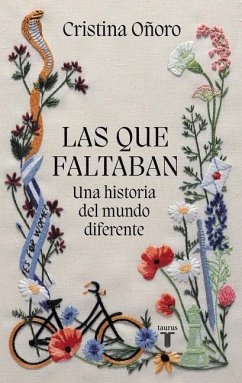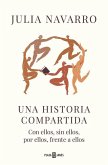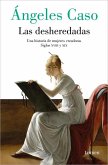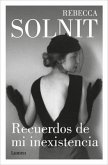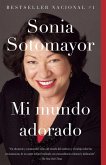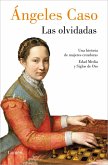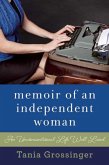Un relato emocionante, profundo y divertido de la historia de la humanidad en clave femenina. Juana de Arco, Malinche, Sofonisba Anguissola, Mary Wollstonecraft, Victoria Kent, Jane Austen, Marie Curie, Simone Weil o Rosa Parks también estuvieron ahí. Con brillantez y elegancia, Cristina Oñoro construye un fascinante relato que desmonta las narraciones sobre la humanidad y derriba los discursos misóginos heredados. A partir de una maravillosa red de conexiones entre experiencias femeninas, Cristina Oñoro cuenta otra historia del mundo, empleando para ello un sinfín de detalles memorables y anécdotas curiosas, así como los últimos avances de la investigación especializada sobre sus protagonistas. Las que faltaban recorre con rigor algunos momentos históricos cargados de significado, desde la oscuridad de las cavernas prehistóricas hasta la Guerra de Afganistán, pero también de la literatura, el arte, la filosofía y la ciencia para tratar de iluminar, con notables dosis de ironía y erudición, las zonas de sombra en las que se ha relegado a las mujeres. El resultado es una nueva épica, atrevida y poderosa, que desmitifica la construcción heroica y violenta del pasado en favor de una visión del mundo profundamente relacional y abierta a lo posible. De la mano de la autora, el lector descubrirá a las amigas de Juana de Arco, se reirá con las confusiones lingüísticas entre Malinche y Hernán Cortés durante la Conquista y se asombrará ante los malabares de los Curie para lograr cierta conciliación familiar y que Marie también pudiera quedarse en el laboratorio hasta tarde. Sin caer en la tentación de presentar a sus protagonistas como excepciones, Las que faltaban traza una auténtica genealogía y en sus páginas vemos desfilar a muchas otras mujeres, como las comadronas del mundo clásico, la hija de Cleopatra, la escritora Christine de Pizan, las damas de la corte de Isabelle de Valois, Mary Shelley y Cassandra Austen, las alumnas de la Residencia de Señoritas de Madrid, las activistas Gloria Steinem y Dorothy Pitman Hughes o escritoras chicanas como Gloria Anzaldúa. Las incisivas observaciones de Virginia Woolf, así como una amplia selección de imágenes, acompañan la lectura del libro, en el que también se recorre de forma sutil la historia del pensamiento feminista. ENGLISH DESCRIPTION A personal, exciting, and fun tale of the history of humankind, told in female code. Joan of Arc, Malinche, Sofonisba Anguissola, Mary Wollstonecraft, Victoria Kent, Jane Austen, Marie Curie, Simone Weil and Rosa Parks were also there. Elegantly and brilliantly, Cristina Oñoro builds a fascinating tale that dismantles the narrative about humanity and brings down the hereditary misogynistic discourse. From a wonderful network connecting female experiences, Cristina Oñoro tells a different story of the world, using endless memorable details and curious anecdotes, as well as the latest advancements in specialized research about her protagonists. Those Missing rigorously covers some historical episodes charged with meaning, from the darkness in prehistoric caverns, to the war in Afghanistan, but also literature, art, philosophy, and science, trying to bring light, with a notable measure of irony and erudition, into those shadowy places these women have been shunted off to. The result is a new epic, bold and powerful, that demystifies the heroic and violent construction of the past in favor of a world view profoundly relational and open to possibility. By the author's hand, the reader will meet Joan of Arc's friends, will laugh over the linguistic misunderstanding between Malinche and Hernán Cortés during the Mexican Conquest, and will be astonished by the Curie family's struggle to reach a certain conciliation, permitting Marie to stay in her laboratory until late. Without giving in to the temptation of presenting its protagonists as exceptions, Those Missing draws an authentic genealogy, and we see many more women through its pages, like midwives from antient times, Cleopatra's daughter, the writer Christine de Pizan, ladies in waiting at Isabelle de Valois' court, Mary Shelley and Cassandra Austen, students of the Ladies Residence in Madrid, activists Gloria Steinem and Dorothy Pitman Hughes, or Mexican-American writer Gloria Anzaldúa. Virginia Woolf's keen observations and a broad selection of images enrich the book, in which there is also a subtle trace of the history of feminist thinking.
Hinweis: Dieser Artikel kann nur an eine deutsche Lieferadresse ausgeliefert werden.
Hinweis: Dieser Artikel kann nur an eine deutsche Lieferadresse ausgeliefert werden.

